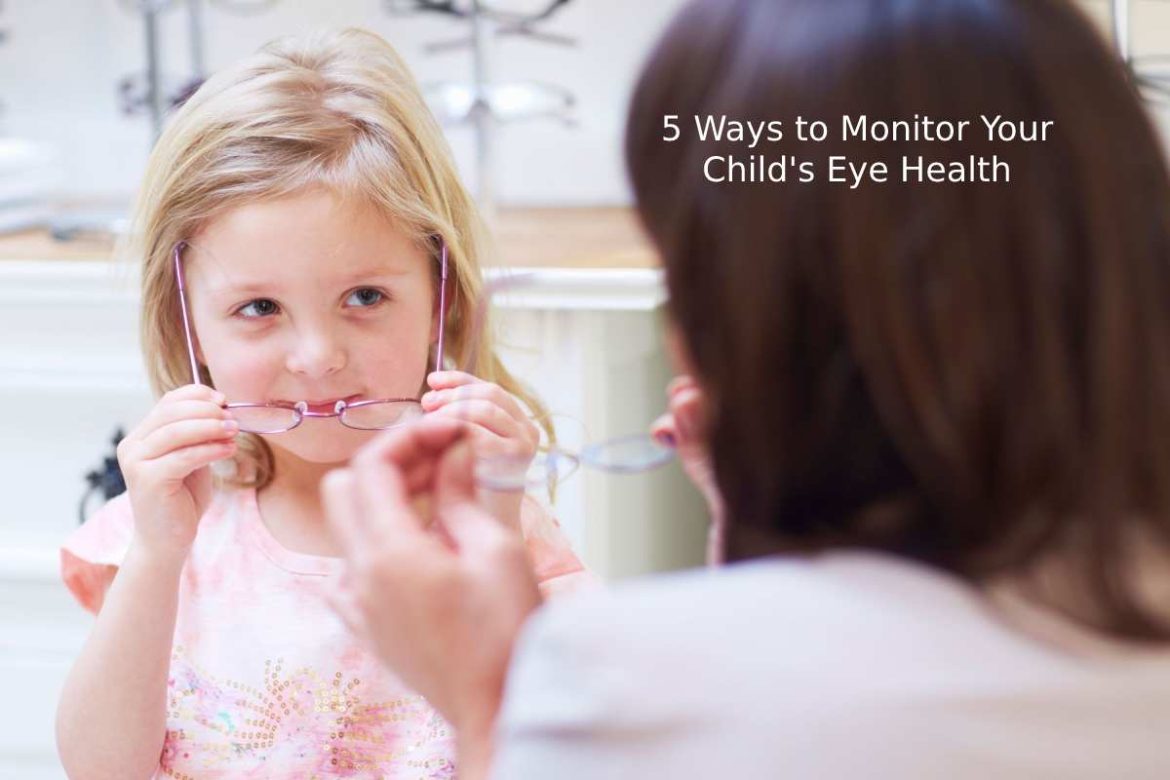5 Ways to Monitor Your Child’s Eye Health – Your child’s eyes are one of the most important organs he or she has. After all, without seeing properly, your child will have a hard time functioning with peers and conducting his or her daily activities. In addition, vision problems that arise in childhood can continue to affect your child well into adulthood. However, you may not know exactly what signs you should be looking for.
This guide will help you understand what kinds of eye problems could affect your child and teach you how to monitor their eye health.
Get Regular Eye Exams
It’s important for everyone to get an eye exam at least once every two years, but this should be especially true for children who wear contacts or glasses for kids. If your child wears contacts, make sure they see an optometrist at least once every year for a check-up. If they wear glasses for kids, it’s recommended that they go in once every two years for an exam and new eyeglasses if needed. The more often you go in for these check-ups, the better protected you will be against any potential vision problems down the road.
Eat Healthy Foods
Many diseases and conditions that affect children’s eyesight stem from nutritional deficiencies. Make sure your child eats plenty of fresh fruits and vegetables every day. These foods are rich in vitamins A, C and E — nutrients that help keep the eyes healthy. Also, make sure your child gets enough omega-3 fatty acids (which are found in fish) by serving him or her fish once or twice per week.
Get Enough Sleep
Your body needs sleep to rejuvenate itself after a long day of activity or work. You may be tempted to push yourself too hard or stay up late because there are so many things on your list to do, but getting enough rest is essential for good health — including eye health. If you’re not getting enough sleep, could lead to dry eyes or even headaches that make it difficult for kids to concentrate in class or perform well on tests at school.
Exercise Regularly
Regular exercise has many benefits for children, including helping them to maintain a healthy weight and boost their immune system. It can also improve their mood and reduce stress levels, which in turn helps them feel much better about themselves and reduces the chances of developing anxiety or depression. Exercise is also great for improving circulation throughout the body and ensuring that blood flow remains strong and efficient at all times.
Monitor Screen Time

While there has been some debate over whether or not screen time is bad for kids, there is no denying that it can be damaging if used too much or at inappropriate times. The American Academy of Pediatrics recommends limiting screen time for kids under 18 months old and encouraging interaction with real-world objects instead of digital ones. If a child plays on an iPad or phone all day long, it could lead to poor vision development, lack of attention span and even sleep disturbances later in life.
Conclusion
When it comes to your child’s eye health, early detection is key. By implementing these 5 tips you can dramatically increase the odds of detecting any developing eye conditions in your child at an early age.


